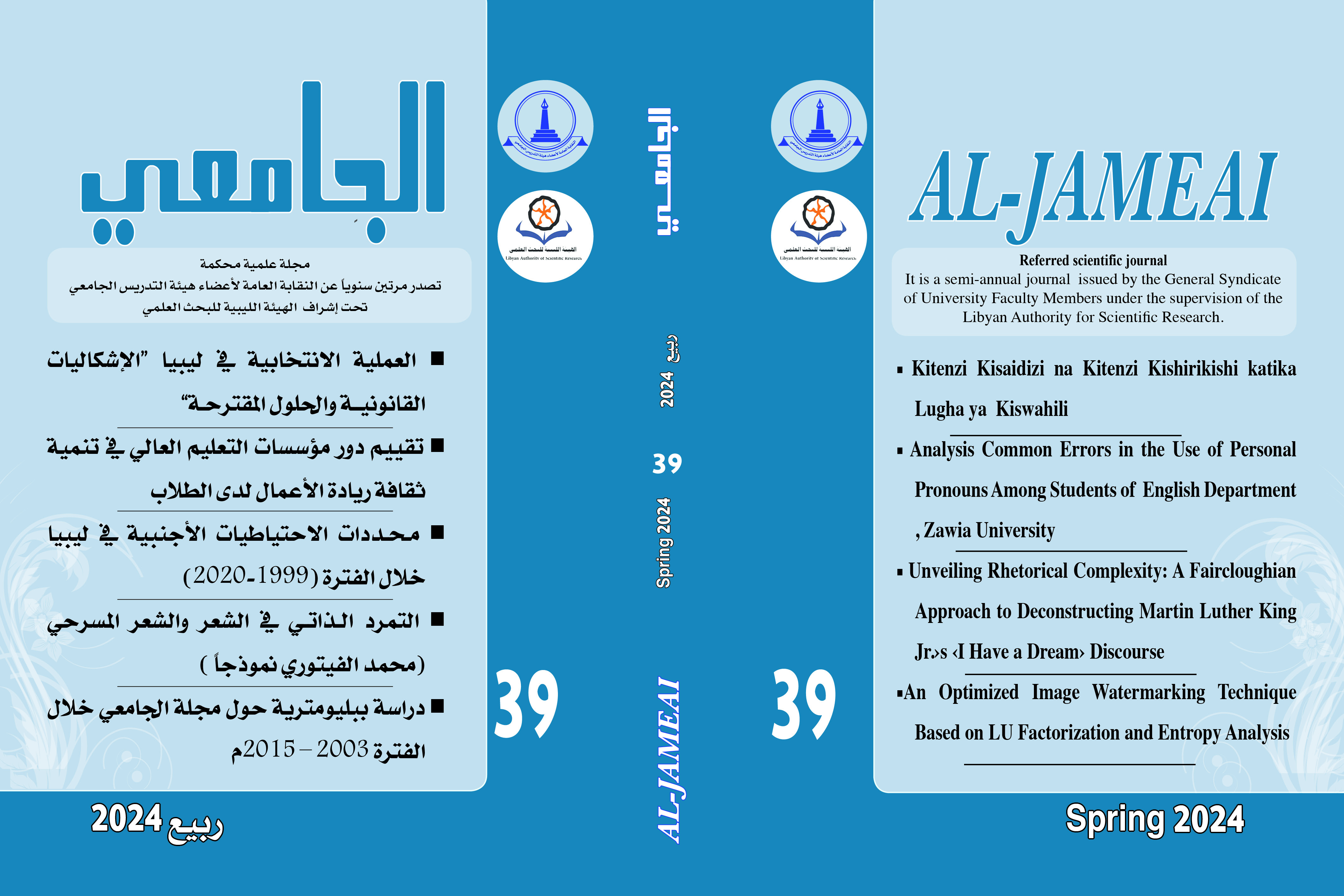أنظمة الإرشاد الزراعي العربية
(الواقع وآفاق التطوير)
الملخص
المستخلص:
تناولت الورقة البحثية واقع الزراعة العربية ومشاكلها تحت عنوان: أنظمة الإرشاد الزراعي العربية
ــ الواقع وآفاق التطوير ــ
وتطرقت إلى كفاءة أنظمة الإرشاد الزراعي وأبرزت أهم ملامحها بما يعزز مفهوم الإرشاد ودوره التنموي في قطاع الزراعة على المستويين العام والخاص لما لذلك من تأثير إيجابي من ناحية والظروف المتعلقة بمراحله المختلفة من ناحية أخرى، واهتمت بالوصول إلى حلول مناسبة، واعتمدت الورقة البحثية المنهج الوصفي في العرض والتحليل وفقاً للآتي:
- مستقبل الإرشاد الزراعي من منظور تنموي.
- مستقبل الإرشاد في ظل الإصلاح والهيكلية.
حيث كانت أهم الاستنتاجات كالآتي:
- لا توجد تشريعات قانونية تنظم الإرشاد الزراعي في معظم الدول العربية.
- إدارة الأجهزة الإرشادية الزراعية في معظم الدول العربية تغلب عليها صفة المركزية.
وتم التوصل إلى توصيات أهمها:
- تحديد أولويات مهام الأنظمة المركزية للإرشاد الزراعي.
- مراجعة وتطوير المعالم الرئيسية لفلسفة العمل الإرشادي الزراعي.
Abstract:
The research paper dealt with the reality of Arab agriculture and its problems under the title: Arab agricultural extension systems - reality and development prospects -
It touched on the efficiency of agriculture extension systems and highlighted its most important features in way that enhances the concept of extension and role in the agriculture sector at both the public and private levels, due to its positive impact on the one hand. And the circumstances related to its various stages on the other hand, and was concerned with arriving at appropriate solution The research paper adopted the descriptive approach in present action and analysis according to the following:
- The future of agriculture extension from a development perspective
- The future of guidance in light of reform and structure. countries The most important con agriculture extension in most Arab countries.
were as follows:
1.l There is no legal legislation regulating agriculture extension in most Arab countries.
- The management of agriculture extension agencies in most Arab countries is predominantly.
Recommendations were reached, the most important of which are;
- determining priorities for the tasks of the central agriculture extension systems.
- Review and develop the main features of the agriculture extension work philosophy.
التنزيلات









